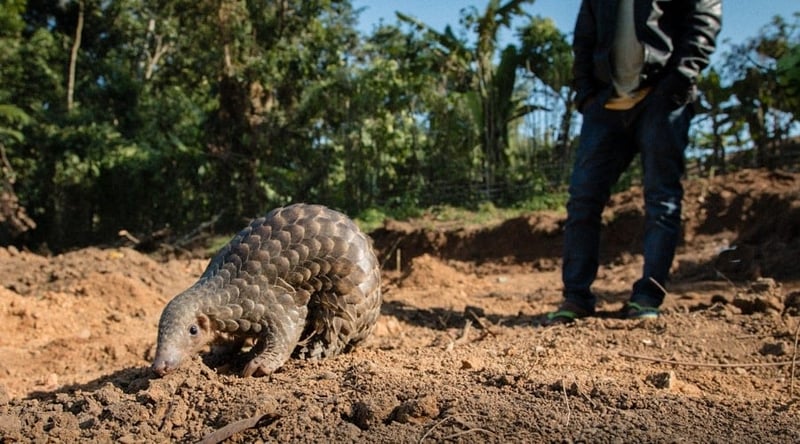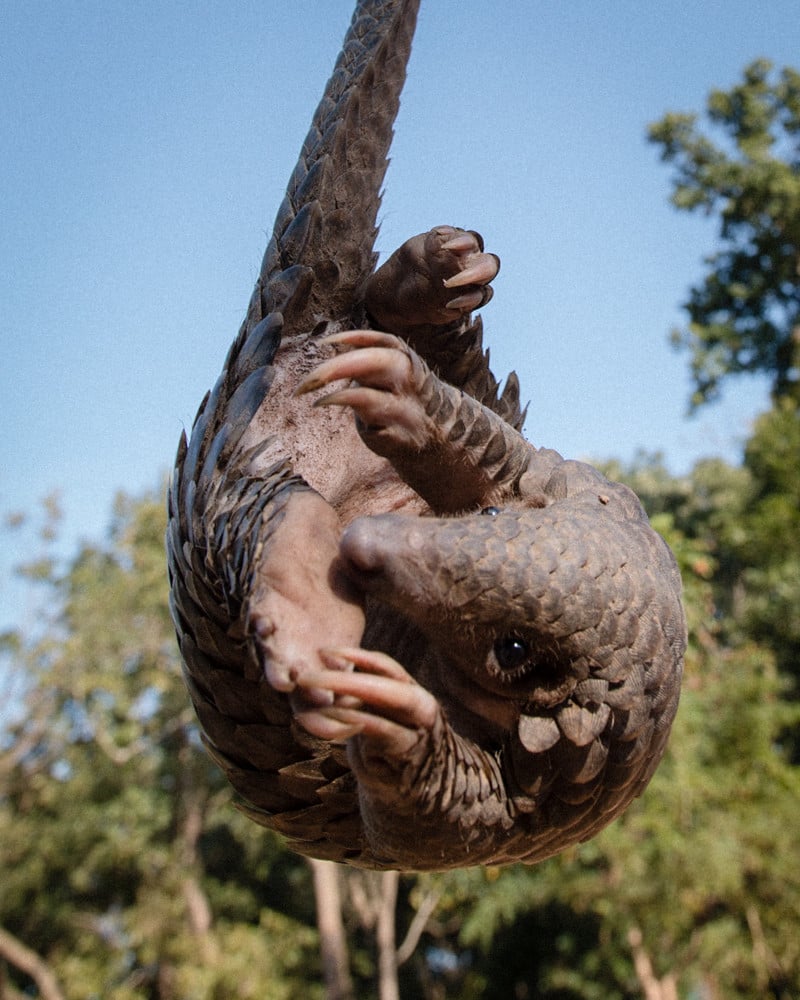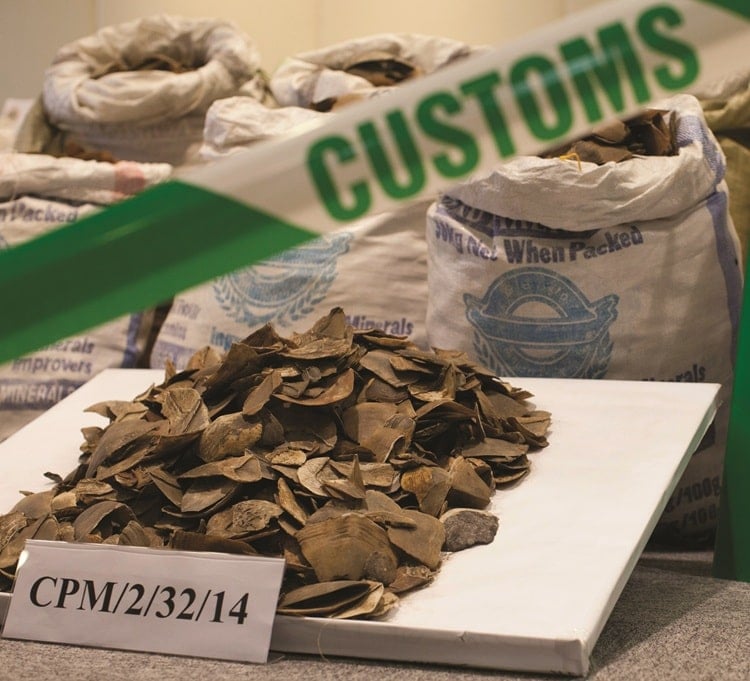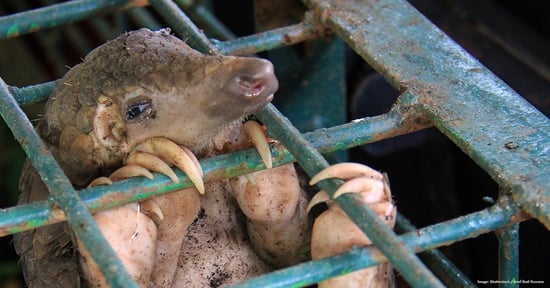
Endangered pangolins sold on Tiktok, new research finds
News
TikTok is being used by wildlife traders in Togo, Africa to openly advertise and sell dead endangered wild animals - including white-bellied pangolins - new research by World Animal Protection reveals.
The findings highlight a growing global crisis where social platforms are facilitating the wildlife trade, bypassing traditional enforcement mechanisms.
Pangolins are the most trafficked mammals in the world, prized by some for their meat and scales - the latter used in traditional medicine across parts of Asia and Africa. Despite a global ban on international commercial trade in all pangolin species, trafficking persists.
Researchers reviewed 80 TikTok videos from two public accounts posted between November 2022 and April 2024. These videos featured:
- Over 3,500 carcasses of smoked wild animals
- 27 different species, many of them protected under national and international laws
- Over 130 white-bellied pangolins (Phataginus tricuspis), a species classified as Endangered by the International Union for Conservation of Nature (IUCN) and protected under national and international laws, including being banned from international commercial trade through its CITES Appendix I listing.
Although TikTok's Community Guidelines prohibit wildlife trafficking, enforcement is failing. Many of the protected species in the videos, including pangolins, monitor lizards, and African wildcats, are illegal to trade without permits, yet were advertised without restriction.


We are seeing social media becoming the new marketplace for endangered wildlife. It is easily accessible and massively unregulated, placing a direct threat to species' survival.
TikTok's current failure to enforce its own rules is giving traders access to global buyers and puts endangered species, like white-bellied pangolins, a few clicks away from extinction.
If social media platforms don't act, extinction could unfold in real-time on their apps. This is a wake-up call. We must ensure platforms like TikTok do not become safe havens for wildlife traders. We need bold action - not just in Africa, but globally.
This research confirms that local and regional demand - not just international trafficking - is now a major threat. On TikTok, traders encourage users to choose wild meat for its taste and 'health benefits' normalizing the illegal sale of protected species to vast online audiences.
With over 1.5 billion monthly users, TikTok has become a powerful driver of trends - and now, illicit wildlife trade. The analysed videos had nearly 1.8 million views, 53,000 likes, and over 6,000 combined shares.
In West and Central Africa, wild meat has long been valued for its taste, cultural importance, and role in local livelihoods. But the rise of social media sales is transforming the scale and nature of this trade.
What was once a largely local, traditional practice is now reaching audiences far beyond national borders. This shift raises urgent concerns - not just for the survival of wild species, but also for public health, sustainability, and the communities that depend on wildlife.
Q: Why are Pangolins traded for their scales?
A: Pangolins are the most trafficked mammals in the entire world. The thing that makes pangolins so unique, is what they’re hunted for – their scales. Once a pangolin is mercilessly killed, their scales are sold on the black market. Particularly in China and Vietnam, pangolin scales are thought to have curative properties. But they’re made of keratin, the same thing as our own fingernails and hair, and have no proven medicinal value. In some countries, pangolin meat is also considered to be a delicacy, with the scales used as decorations for rituals and jewellery.

Wildlife trade
Global wildlife trade is an inhumane industry that cruelly exploits our planet’s wildlife for financial gain.
Donate to protect pangolins
Ending the wildlife trade won’t only protect animals, it will help protect people and the planet, too.

